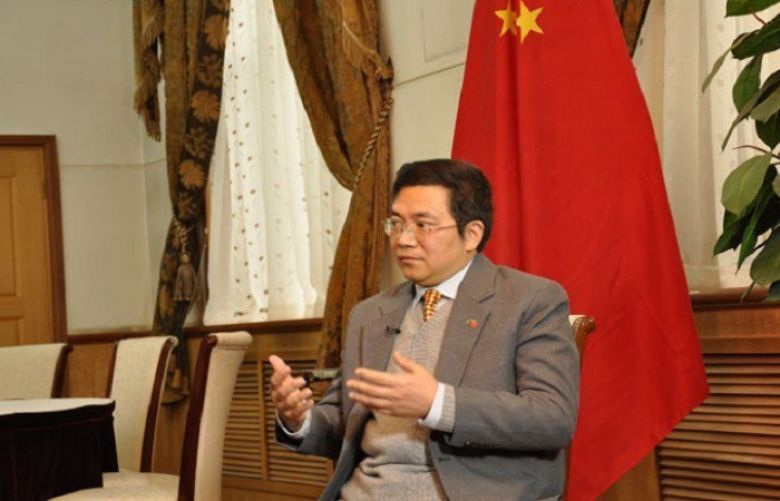In a significant development, Pakistan and China on Monday joined hands in opposing the new US strategy for Afghanistan and South Asia, as the two countries — contrary to Trump administration’s reliance on military options — called for a political solution to the long-running conflict.
The development came on a day when Acting US Special Representative for Pakistan and Afghanistan Alice Wells was supposed to be in the town. Her visit was postponed earlier at Islamabad’s request. Instead, Chinese Special Envoy on Afghan Affairs Ambassador Deng Xijun arrived in the capital for crucial discussions with Pakistani authorities on the implications of Trump’s Afghan strategy.
In his new policy announced on August 21, the US president laid more emphasis on finding a solution through the use of force while also antagonising Pakistan, a country pivotal to any endgame in Afghanistan, by accusing it of supporting “agents of chaos, violence and terrorism”.
Against the backdrop of the evolving situation, the visit of a senior Chinese diplomat has high significance.
Ambassador Xijun held talks with Foreign Secretary Tehmina Janjua and discussed regional and international efforts for lasting peace and stability in Afghanistan, according to a statement issued by the Foreign Office.
The Chinese envoy reaffirmed his country’s “continuing and firm support to Pakistan’s commitment and efforts for peace and stability in Afghanistan” while emphasising that there was no military solution to the conflict. He also underlined the need for a politically-negotiated settlement through an Afghan-led and Afghan-owned peace process, according to the Foreign Office.
His statement clearly suggested that China, like Pakistan, is not enthused by the new US plan for Afghanistan.
Even American commentators have been critical of the new plan on the grounds that the Trump administration is trying to resolve the issue through the use of force while ignoring regional players such as China, Russia and Iran, which can play a crucial role in bringing peace to the war-torn country.
Meanwhile, in another sign of China’s unflinching support to Pakistan, the Chinese envoy lauded Pakistan’s contribution and sacrifices in the fight against terrorism.
In this regard, he said: “Pakistan’s efforts towards eliminating the scourge of terrorism should be fully recognised by the international community.”
Foreign Secretary Janjua underlined the importance of the Pakistan-China strategic partnership while emphasising the need for close cooperation and coordination between the two countries for promoting the shared objective of peace and stability in the region.
She also expressed satisfaction at the productive deliberations held between the two sides during her visit to Beijing last week.
They agreed to strengthen cooperation in the ongoing efforts to facilitate peace and reconciliation in Afghanistan as well as promoting meaningful engagement between the three neighbouring countries.
Foreign Minister Khawaja Asif is also expected to go on a tour of regional countries, including China to garner support in the face of renewed strains in ties with the US.
Analysts have already warned that Trump’s new strategy could not only antagonise Pakistan but also push it further closer to China and Russia.
Although there has been no official confirmation yet, the government is also planning to convene a conference of envoys posted in key world capitals to seek their input before formulating a policy on the new US strategy for Afghanistan.
The envoys’ conference, sources suggested, may take place soon after Eid.







